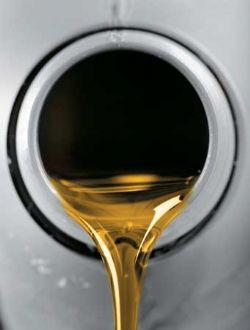|
IN order to ensure food product safety, many food processors have adopted the HACCP system. For these processes, H1 food-grade lubricants must be used in equipment such as hydraulic systems, pumps, mixers, tanks, chain drives and con¬veyor belts to eliminate the risk of incidental contamination by non-food grade lubricants.
There are many misconceptions when it comes to food-grade lubricants; these include that food-grade lubricants cannot last as long as non-food grade lubricants; food-grade lubri¬cants cannot protect equipment as well as non-food grade lubricants; using food-grade lubricants adds significant costs to operations; for tough applications only non-food grade lubricants can be used; and, all food-grade lubricants are the same.
When selecting the correct food-grade lubricant for major applications there are certain key criteria to consider, which can be evaluated using standardized laboratory tests. Users will find that by exploring today’s advanced food grade lubricants they are able to implement stronger, more com¬prehensive HACCP programs, inclusive of this important area.
The following are criteria that must be considered when selecting various lubricant types:
• Food-Grade Hydraulic Fluid – Resistance to oxidative and thermal breakdown keeps systems free of sludge and varnish to ensure smooth and reliable operation of hydraulic valves and actuators. It can also result in longer fluid life and reduced downtime in tough operating environ¬ments. A hydraulic fluid should protect metal pump parts from scuffing and scoring, and reduce overall maintenance costs by extending the life of the hydraulic system. A hydrau¬lic fluid should also prevent reservoir overflow and eliminate “sponginess” from hydraulic systems and damage caused by pump cavitations.
• Food-Grade Compressor Fluid – For a com¬pressor fluid, resistance to oxidative and thermal breakdown guards against oil thickening, deposit and sludge formation. It also extends fluid life, which saves on costly change-outs, downtime, and oil disposal costs. Protection against wear will extend the time between compressor overhauls and reduce overall maintenance costs. Lower oil carryover also reduces sludg¬ing and deposit formation in air-oil separators, and storage tanks and lines, which ultimately lowers maintenance costs. Fluid that provides rust and corrosion protection can extend compressor life, result¬ing in reduced downtime and possible repair savings.
• Food-Grade Gear Fluid – Higher load carrying capability prevents seizure, scuffing and spall¬ing, even under shock loading conditions. Keeping gearboxes free of sludge and varnish results in longer fluid life and reduced downtime, even at high temperatures and in the presence of water and acidic contamination. Foaming and air entrapment resistance prevents reservoir overflow and gear damage caused by insufficient lubricant film due to aeration. A gear fluid should also provide rapid separation from water.
• Food-Grade Grease – Food-grade grease should maintain consis¬tency and lubrication in the presence of food acids, juices and by-products. It should not run from bearings operating at high temperatures, yet should remain pumpable at low tempera¬tures. Food-grade grease should prevent seizure, scuffing and spalling under shock loading conditions and prevent bearing, gear and equipment damage in moist or wet operating conditions.
When selecting food-grade lubricants, work with your lubricant supplier. Start by explaining your oper¬ating issues to find a solution that will decrease your overall operating costs while ensuring strong HACCP implementa¬tion in your plants.
Article by Colleen Flanagan, category manager, specialty fluids and food grade lubricants at Petro-Canada Lubricants. The Canadian Oil Company Limited is New Zealand distributor for Petro-Canada Lubricants.
|
|






